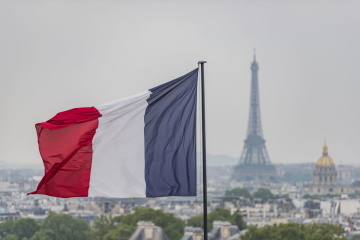
French Foreign Ministry responds to Putin's threats against Europe, NATO
The threats Russian dictator Vladimir Putin voices to European member states and NATO allies are unacceptable and confirm Russia's escalating stance.
23 November 2024

The threats Russian dictator Vladimir Putin voices to European member states and NATO allies are unacceptable and confirm Russia's escalating stance.
22 November 2024
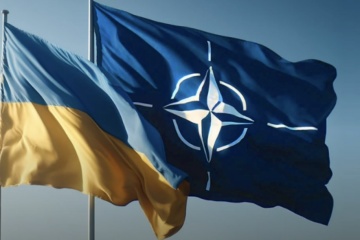
British Prime Minister Keir Starmer and NATO Secretary General Mark Rutte held discussions on Friday regarding the situation in Ukraine ahead of the winter season.
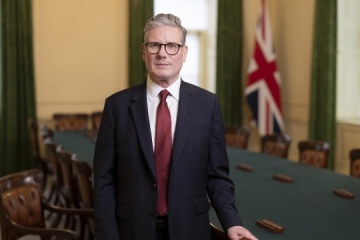
The UK Prime Minister Keir Starmer has stated that Britain is not at war with Russia but will continue to support Ukraine, which has been enduring Russian aggression for over 1,000 days.
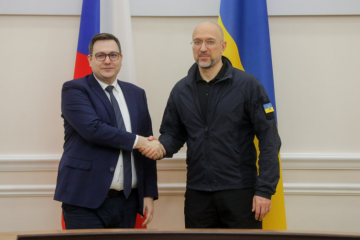
Prime Minister of Ukraine Denys Shmyhal and Czech Foreign Minister Jan Lipavský have discussed the issues of military support, Ukraine's reconstruction and European integration.
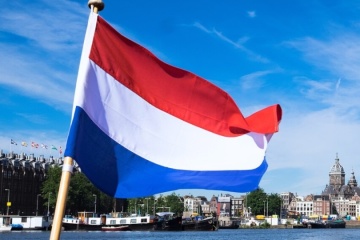
The Netherlands condemns Russia's aggression against Ukraine, including the possible use of intermediate-range ballistic missiles.
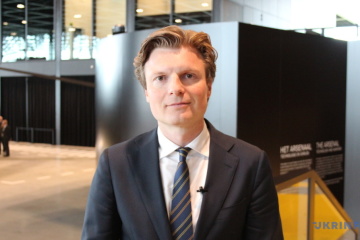
Minister of Defense of the Netherlands Ruben Brekelmans has said that Russia's use of a new missile is another escalatory step and stressed that the use of this type of weapon is unacceptable.
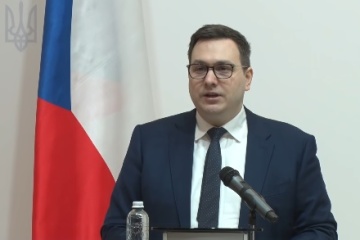
The use of a medium-range ballistic missile against Ukraine is an attempt to intimidate the population of Ukraine and Europe by the Russian dictator Vladimir Putin, before whom no one should bow.
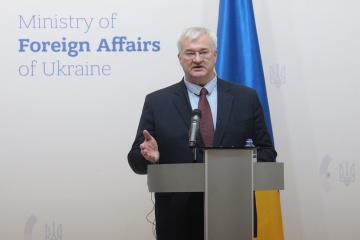
Foreign Minister Andrii Sybiha of Ukraine says at his meeting with U.S. Deputy Secretary of State John Bass, the supply of military assistance approved by the incumbent U.S. administration was discussed, and now Ukraine clearly understands the terms and volumes of this aid.
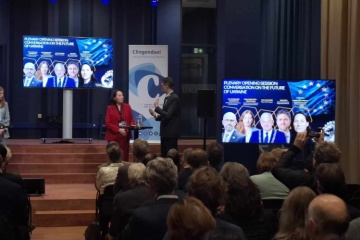
Russia's full-scale war against Ukraine and its geopolitical consequences, the results of the US presidential election, and the situation of the EU were the main topics at the conference in The Hague on Friday.

The Center for Strategic Communication and Information Security pursues efforts to provide a brief explanation to foreign audiences on the current topics of particular interest as regards Ukraine.
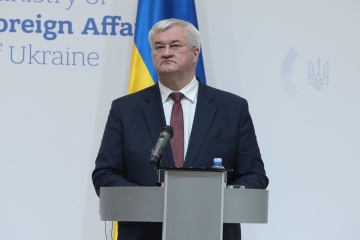
Ukraine has Austria’s unconditional support on its path to the European Union membership.
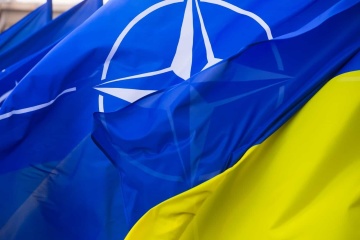
Next meeting of the Ukraine-NATO Council (UNC), likely to address the situation following Russia's use of a medium-range ballistic missile against Ukraine, will be held on November 26 at the ambassadorial level.
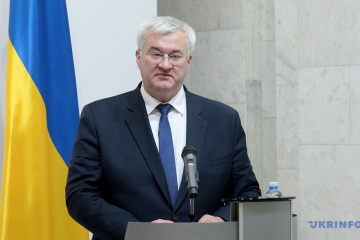
There can be no appeasement policy regarding Russia. The only way to achieve peace is through the demonstration of strength, and Ukraine has a clear plan to make this "path to peace through strength" as effective as possible in cooperation with its partners.
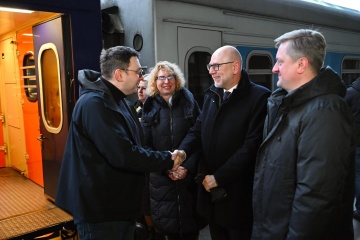
Czech Foreign Minister Jan Lipavsky has arrived in the Ukrainian capital on a visit today.
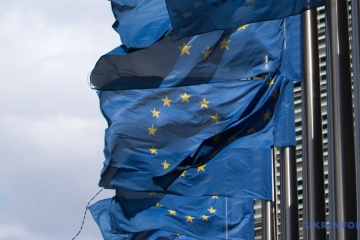
The European Union reaffirms its position that no initiative on a peaceful settlement in Ukraine can be implemented without Ukraine’s participation.
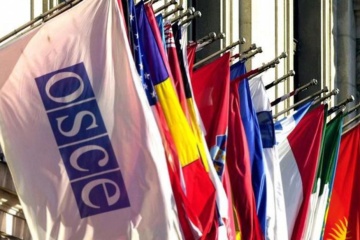
The agricultural infrastructure of Ukraine, like in 1932-1933, is once again under attack from Moscow, this time from Vladimir Putin.
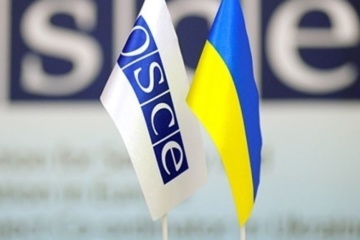
To change the course of the Russian war of aggression, Ukraine needs powerful deterrents that will force Russia to recognize Ukraine’s sovereignty and territorial integrity, as well as the European and Euro-Atlantic aspirations of the Ukrainian people.
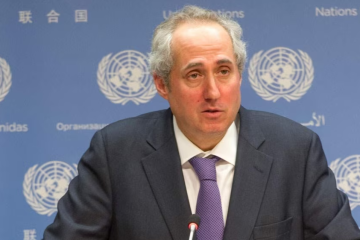
The UN Secretary-General wants all parties to the Russo-Ukrainian war to take urgent steps toward de-escalation since everything is developing “in the wrong direction”.
21 November 2024
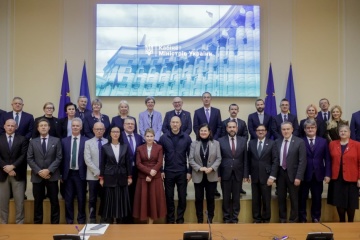
Prime Minister Denys Shmyhal of Ukraine had a meeting with the ambassadors of EU member states to discuss continued support for Ukraine next year.
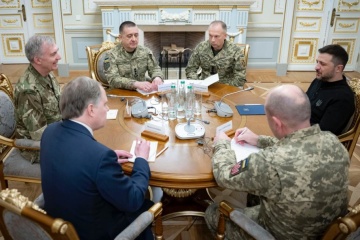
President Volodymyr Zelenskyi met with the delegation from the UK, who arrived in Ukraine on a visit, led by the Chief of the UK Defense Staff, Admiral Sir Antony Radakin.
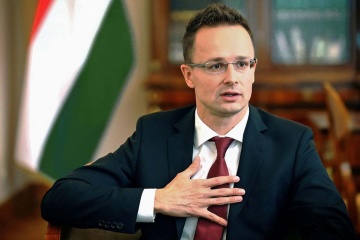
Since the beginning of the war in neighboring Ukraine, Hungary has insisted on finding a peaceful solution at the negotiating table, and continues to believe that arms supplies to Ukraine only increases the death toll and destruction.

The Center for Strategic Communication and Information Security pursues efforts to provide a brief explanation to foreign audiences on the current topics of particular interest as regards Ukraine.
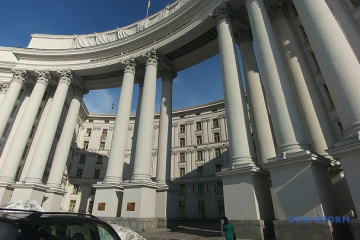
In connection with Russia's use of a new type of weapon against Ukraine during the attack on Dnipro on November 21, the Ministry of Foreign Affairs of Ukraine is already informing its partners and activating response mechanisms within the UN, NATO, and plans to involve the OSCE mechanisms.
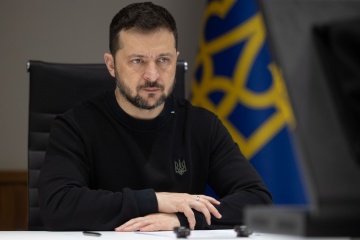
President of Ukraine Volodymyr Zelensky will sign a decree to enact a decision by the National Security and Defense Council (NSDC) concerning dignity.
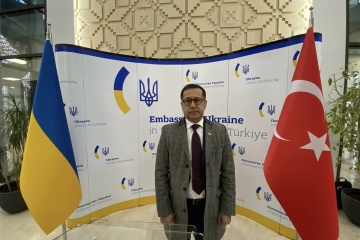
No peace talks can be held without taking into account the interests of Ukraine, and no decisions on this issue can be made without Ukraine. The decision of the Ukrainian people on peace initiatives should be supported by all countries.
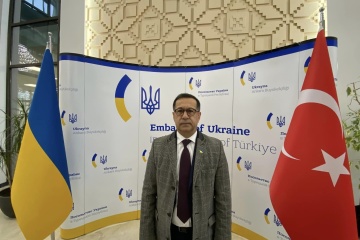
Russian aggression must be stopped as soon as possible, and the only way for this is to achieve Ukraine’s victory while the permission from the U.S. to use long-range missiles against targets in Russia’s rear will contribute to this end.
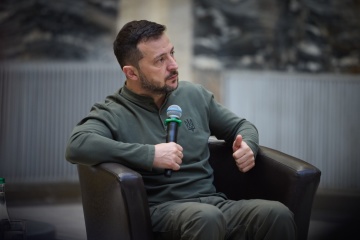
President Volodymyr Zelensky emphasizes that Ukraine will always be on the political world map due to the desire to preserve freedom and independence.
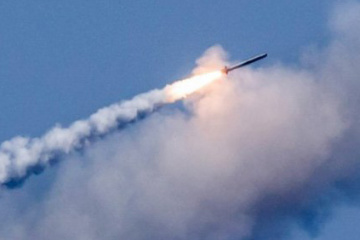
Thursday morning, the Russians launched an intercontinental ballistic missile, a Kinzhal air-launched ballistic missile, and seven Kh-101 cruise missiles, at the city of Dnipro.
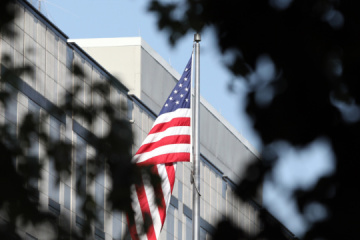
The U.S. Embassy in Kyiv has resumed operations, while recommends that American citizens staying in Ukraine follow the instructions of the Ukrainian authorities whenever air raid alerts go off.
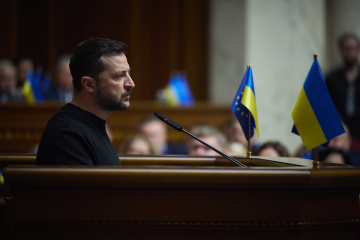
The Center for Strategic Communication and Information Security pursues efforts to provide a brief explanation to foreign audiences on the current topics of particular interest as regards Ukraine.